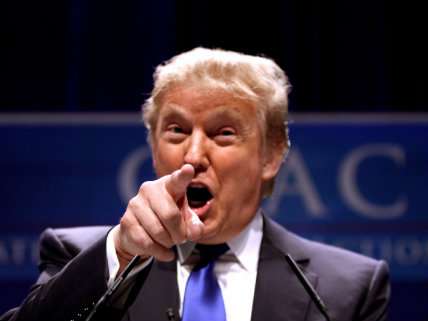Early Super Tuesday Wins Demonstrate Donald Trump's National Appeal
Trump is not a niche candidate.

Donald Trump was projected to win big in today's Super Tuesday primary contests. And so far, the projections look like they are holding up.
Although the night is still young, he appears to have won victories in four states: He's projected to win in Georgia, Alabama, Tennessee, and Massachusetts, according to CNN. [Update: Trump is also projected to win in Virginia, according to Fox News, giving him a significant win in a state where some had hoped Marco Rubio might have a chance.]
These wins demonstrate Trump's broad national appeal. Trump appeals to the more secular, relatively moderate—even, in some sense, liberal—GOP voters in Massachusetts, because of his outsider status and his blunt rhetoric. But he also appeals to the more religious, staunchly conservative voters in southern states.
We've already seen some early evidence of Trump's mass appeal: He's won in New Hampshire and South Carolina and Nevada, after all. But Super Tuesday looks set to prove that Trump's fanbase really is as broad as it seems.
The common denominators for Trump fans appear to be a generalized anger at government (especially in the South), a desire for an outsider candidate, and a sense that Trump is willing to say things that no other candidate will say.
All of which suggests that frustration with government, exasperation with the failures of the Republican party, and opposition to the political status quo are, at least within the GOP, both geographically diverse and intensely felt throughout the country. Yes, Trump appeals somewhat more to men, and to voters with less income and education, but what Trump's wins so far suggest is that these are not niche sentiments, limited to a few states or a single region of the country, at least where Republicans are concerned. And as a result, like it or not, Donald Trump is not a niche candidate.


Show Comments (14)